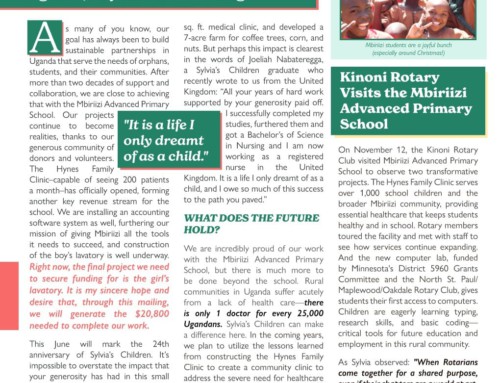As 2020 began, we were all blithely going along our sponsorship sales paths until we ran smack into the stone wall of a global pandemic. As the efforts to contain the COVID-19 outbreak have led to countless cancelled or postponed events, event planners have learned quickly that they can’t rely on their previous sales strategies and are scrambling to hold on to as many sponsor dollars as they can which is easier said than done, these days. So, what can you do?
Four Ways to Save Sponsorship Revenue During This Crisis
 For postponed events, find ways to add value. First, if your event is postponed, reach out to current sponsors. Assure them that their benefits and values from the event are still in place, even if it is happening later in the year, and then ask what more you can do for them.
For postponed events, find ways to add value. First, if your event is postponed, reach out to current sponsors. Assure them that their benefits and values from the event are still in place, even if it is happening later in the year, and then ask what more you can do for them.
Maybe you could come up with a creative way to give them exposure leading up to the event a virtual tour on your website, a social-media contest, a unique story that would generate good PR. Open your mind to new, even crazy ideas.
I recently had to postpone two spring wine festivals that had an automobile dealer as a sponsor. So I reimagined these as “virtual wine festivals”: a bi-monthly release of various New Jersey wineries featuring two-minute video presentations that highlight one or two wines each time with a suggested small plate to go with the wines (those who ordered the wine also got the recipe for the small plate). In order to keep the sponsor happy until the fall, we developed a web presence for them during the virtual events, but also featured them prominently in a “live” element we introduced: hang tags for the wine bottles that were sent to all who purchased them.
For cancelled events, find alternative options. Find ways to incorporate your sponsors into your other activities a future live convention, online events, direct marketing efforts and so on. You are creative tap into that creativity.
Don’t forget to ask them what they would like. Offer to put them into future events that meet their needs. They will tell you what they want to accomplish and you can figure out how your events help them do that.
Seek new sponsors. This is a toughie because people are working from home and their business phone lines often go to voicemail, leaving you with email for correspondence. That isn’t ideal for making a strong first impression. I usually send a short note that says “I need to talk with you about [x] to see if what we have is of value to you. Just text me at [xxx-xxx-xxxx] with your number and give me a good time to reach out to you.”
If you don’t hear back in a week, give another call and say, “I really only need two minutes of you time to discuss [name of event or activity] so we can determine if you can get value from partnering with us.” Wait one more week and then leave a final message: “Sorry we haven’t had a chance to talk. I will keep you ‘in the loop’ as we progress with this event. Feel free to contact me if you wish to be involved.”
Do not send an email that says “I’ve been trying to reach you.” Of course you have they know you left messages. Move on to the next one. Remember self-development author Brian Tracy’s statistic: 100 calls gets you 10 appointments get you one sale. You have to get to 89 before you get discouraged. Revisit former sponsors. Reach out to former sponsors. They worked with you in the past, and you have kept in touch with them over the years. (I’ve published a bimonthly newsletter for 10 years that goes to former clients, customers and sponsors, which keeps my name in front of them on a regular basis.) Maybe they have new management, maybe they have new products or product re-introductions, maybe they need an affiliation with an organization or event like yours. You won’t know until you contact them.
Even if sponsors have cancelled in the past, always keep in touch with a brief handwritten note, an article that they would be interested in or a short email; always share with them the opportunities that you have available. It’s an investment in time that will have a payback.
The important thing about sponsorship sales is you want to match the company to the event. You certainly wouldn’t go after AARP for a children’s festival, nor would you go after Mountain Dew for a senior-targeted expo. Study your potential sponsors before you contact them.
Look at their websites, annual reports, read their press releases, look at their team. What are some of the titles/shows that are important to them? Do they already sponsor events? In other words, do your homework. You want to be knowledgeable when you contact them to demonstrate your interest in their organization and to helping them through a partnership with you.
Are sponsorship sales tough right now? You bet. But once again be creative in reaching out to potential sponsors. Understand who they are and what they want to achieve and how partnering with you makes that possible.




